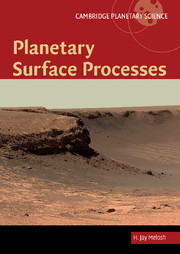1 - The grand tour
Published online by Cambridge University Press: 05 June 2012
Summary
The planets are no longer wandering lights in the evening sky. For centuries man lived in a universe which seemed safe and cozy – even tidy. The Earth was the cynosure of creation and Man the pinnacle of mortal life. But these quaint and comforting notions have not stood the test of time. … No Longer does “the World” mean the Universe. We live on one world among an immensity of others.
Carl Sagan (1970)From the seventeenth to the middle of the nineteenth century it was customary for the scions of affluent British families to make a long tour of all the capitals of Europe to acquaint them with the architecture and culture of their larger world. In the twentieth century NASA planned a “grand tour” of our Solar System that would visit every planet outside the orbit of Mars. That tour never happened. Nevertheless, we have just about accomplished its goals, with the final New Horizons encounter with Pluto scheduled for 2015.
Scientific exploration of the Solar System can be said to have started around 1610, when Galileo Galilei (1564–1642) applied the newly invented telescope to investigate the world beyond the Earth. Telescopes have increased greatly in both size and sophistication since the days of Galileo, but even the best ground-based telescopes are unequal to the task of detailed exploration of the planets. The beginning of the Space Age, opening with the launch of Sputnik 1 in 1957, was the next leap forward in planetary exploration. Spacecraft, carrying instruments and humans, have greatly expanded our knowledge of the planets and moons around us.
- Type
- Chapter
- Information
- Planetary Surface Processes , pp. 1 - 24Publisher: Cambridge University PressPrint publication year: 2011

